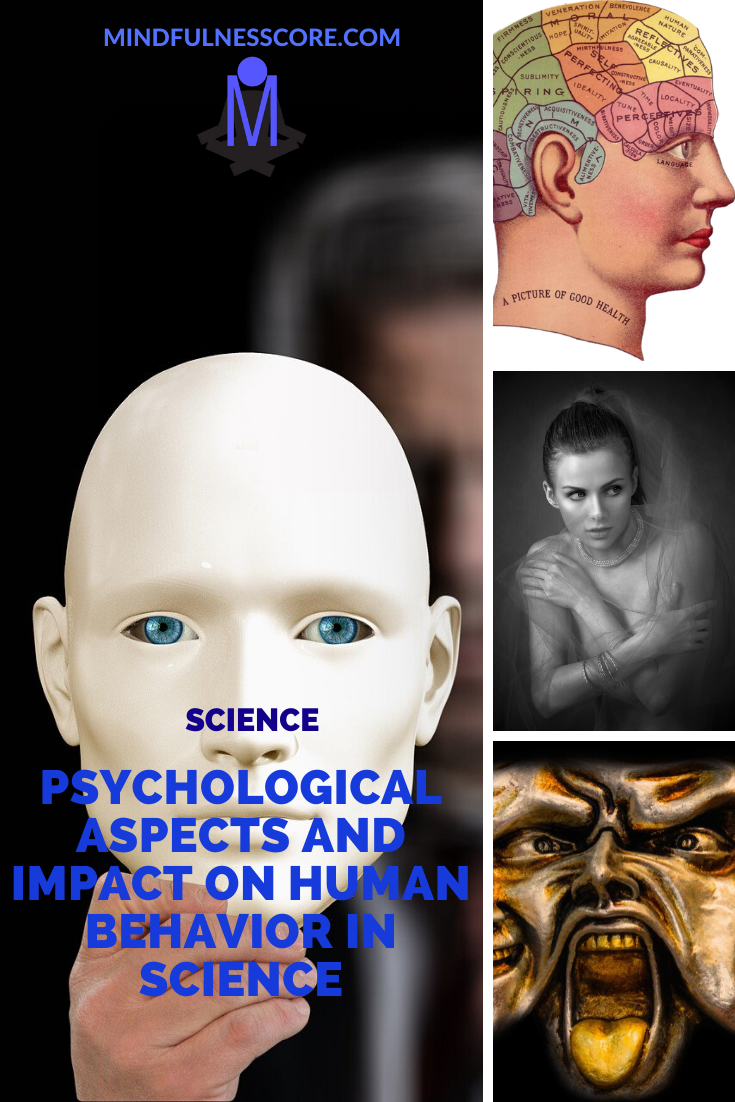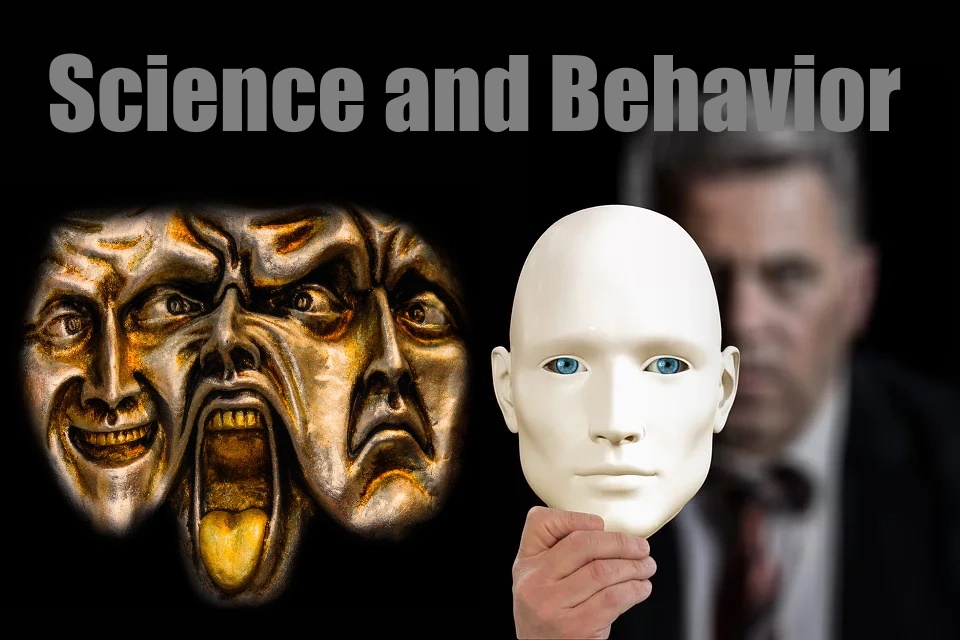Psychological Aspects and Impact on Human Behavior in Science

Science is one of the most captivating forms of behavior and thought that is also socially and culturally very significant. Whereas psychology is the logical and scientific study of thoughts, ideas, behaviors, and conduct. As a result of the amalgamated importance of these two, it is extremely important for logical or scientific thought and behavior to be a focal point of the experimental consideration of psychologists all over the world. A mental viewpoint on logical idea and conduct has been around for almost a century now, however, just in the previous decade, it has started to harden into a proper discipline of the psychological aspect of the extremely vast field that science has become.
The psychological aspect of Science sets out to accurately explore the full scope of mental procedures behind scientific behavior and conduct, intrigue, ability, and innovativeness. Without a doubt, the field of psychology is youthful and generally late when it comes to developing further when compared with other different branches of science. From the entire human race, most people generally are aware of the terms philosophy of science, history of science and even the sociology of science. However, when the matter at hand is the ‘psychology of science’, numerous individuals – even a number of psychologists– frequently do not have the foggiest idea what exactly a person means by that. In any case, for the previous 5 to 10 years, the order of the psychology of science has demonstrated some genuine promise of turning into another subdiscipline in brain research and psychology. To be sure, we currently have a little, however dynamic society – the International Society for the Psychology of Science and Technology (ISPST; www.ispstonline.org), which has customary meetings. Given below, in the article, are summarized highlights of some of the very stimulating discoveries that have stemmed from this juvenile field.
WHAT IS BEHAVIORAL SCIENCE?
Behavioral science can be explained as the investigation and study of the attributes of human beings. This includes their characteristics, as well. Different fields that can be seen flourishing under behavioral sciences are psychology, cognitive science, criminology, and so forth. This field of science examines and dissects the relationships human beings have amongst each other through the social and behavioral aspects of order and discipline, for example, geography, topology, biology, law, psychiatry, and political theory. This science also investigates the impact of actions and activities conducted by humans and their interactions and cooperation.
In a way, it can be said that behavioral science is an extension that helps in building a connection between the characteristic natural sciences with the social sciences. The investigation of behavior in a scientific manner incorporates the study of the human body, also known as anthropology, which is also the manner in which societies see their general public and how their networks shape through correspondence and association. Alongside this, we have organizational behavior which examines how individuals in associations interact, connect and cooperate with one another, and behavioral finance, which mainly concentrates on how individuals respond to shifts in the market and how their emotions drive them to buy something, and so on.
HOW IS SCIENCE CONNECTED TO BEHAVIOR?
The principal contention of the psychological aspect of science is that to completely acknowledge and comprehend scientific ideas and conduct – from the newborn child attempting to make sense of his or her reality to the generally incredible logical and scientific revelations – it is our duty to apply the most ideal hypothetical and exact instruments that can be accessible by therapists. It can be said that in a way, psychology is phenomenally appropriate when the matter at hand is unloading the components that make human beings think and act the way they do, in a scientific manner.
The aforementioned scientific manner, in any case, refers to an option that is more extensive than the idea and conduct of scientists who are still practicing. Or maybe, logical ideas and conduct can be both certain and incipient, as communicated by youngsters and teenagers, just as unequivocal and developed, as communicated by researchers. Along these lines, the psychological aspect of science is not just about the mental powers or psychological forces behind the ideas and conduct of expert researchers. It additionally incorporates the ideas that lead to the development of human beings and even logical thinking in babies, youngsters and teenagers; ability and enthusiasm for science among students who are at any point, a part of high school; loss of enthusiasm for science among undergrads; and even pseudoscientific reasoning and convictions among grownups. To put it plainly, the psychology of science concerns anybody occupied with certain or unequivocal logical ideas and conduct.
There is a large number of psychologies related to science as there are major subdisciplines in brain science or psychology as we commonly refer to it. The important nippiness of this piece blocks a completely established and coordinated treatment of the whole psychology of science (refer to Feist, 2006; Feist and Gorman, 2013; Gholson et al., 1989; Proctor and Capaldi, 2012; Simonton, 1988, for more point by point medications). Given ahead is an apt and a delegate inspection of the sorts of inquiries the field has tended to, and indications for unexplored inquiries for future analysts on the mental establishments of logical idea and conduct. Albeit early, the psychology of science reflects its parent discipline and can be isolated into comparative sub-disciplinary groupings such as neuroscientific, subjective/cognitive, formative/developmental, social/cultural, character/personality, instructive/educational and clinical psychologies of science.
· Neuroscientific Psychology
Notwithstanding managing the body, one of the essential elements of the mind is to comprehend and arrange sensory information. At the danger of oversimplification, this is what science is about, as well – attempting to comprehend our experience of the physical, natural and social universes. Scientific ideas include an increasingly orderly and explicit type of daily natural or verifiable thought. Attempting to comprehend the hereditary and mind systems engaged with logical reasoning is an ideal subject of study for the psychology of science, but then it is essentially a troublesome undertaking. It is difficult and expensive to acquire constant brain pictures of logical reasoning and critical thinking.
· Cognitive Psychology
Of all subdisciplines, cognitive psychology is maybe the most developed of the psychologies of science. Critical thinking, affirmation predisposition, innovativeness, analogical and allegorical thinking, representation and memory all play significant roles in science, and analysts have researched these and other intellectual standards as they apply to the logical idea. Psychological clinicians of science have inspected manners of thinking of nonscientists when they are taking care of logical issues, of historical figures in science, and of researchers tackling reenacted issues and genuine issues in the laboratories.
· Developmental Psychology
Formative therapists address numerous interesting inquiries of logical idea and conduct: How do babies and kids develop understood speculations and ideas about how the world functions, and are these hypotheses and ideas diverse in various spaces, for example, the physical, natural and social universes? How does enthusiasm for science develop? At what age does logical efficiency and innovativeness peak? Does the order of birth affect the advancement of logical intrigue and accomplishment? Furthermore, does scientific interest grow contrastingly for young men and young ladies?
· Social Psychology
Social psychology can be explained as looking at how other individuals (real or envisioned) impact the thought and behavior of another individual. When it is applied to science, social psychology inspects how researchers influence others to alter their perspective (mind), how teams of researchers both coordinate with and go up against each other, how pioneers in science set strategies that influence the imagination and profitability of groups of researchers, and how joint efforts structure to encourage innovative group efficiency. Another fascinating function of the social psychology of science is Robert Rosenthal’s revolutionary work on pseudoscientist results, that is, how the experimenter – through credence, clothing, age, sex, exterior and character – can essentially affect the performance of contestants and therefore, results of reports in unaware and unsuspecting methods.
· Personality Psychology
Characteristics of personality make a few behaviors more probable and others more outlandish. The inquiry is whether specific patterns of character qualities lead to scientific ideas, accomplishments, and conduct almost certain. The appropriate response is ‘yes’. Results from a meta-investigation of 26 examinations revealing impact estimates on the connection between character and logical interest demonstrated that researchers are modestly higher in honesty and lower on the receptiveness to encounter than are nonscientists. Essentially, a meta-investigation of 28 examinations contrasting character in creative with less imaginative researchers found that, compared with their less innovative friends, innovative researchers are increasingly sure and open to understanding and are less honest.
· Educational Psychology
Psychology can provide a lot to improving the condition of arithmetic and science education. Newcombe and associates (2009) abridged four noteworthy regions in which psychology can make and has made commitments: early comprehension of arithmetic, comprehension of science, social and inspirational factors behind logical and numerical enthusiasm, and evaluating arithmetic and science learning.
· Clinical Psychology
One of the least advanced, however, by-the-by, the most fascinating psychologies of science manages emotional wellness and science. The inquiry is whether there are any elevated emotional well-being issues in researchers contrasted with nonscientists. Without a doubt, generally, science has had a lot of figures who endured some sort of mental issue – from Newton and Darwin to Tesla and Faraday.

